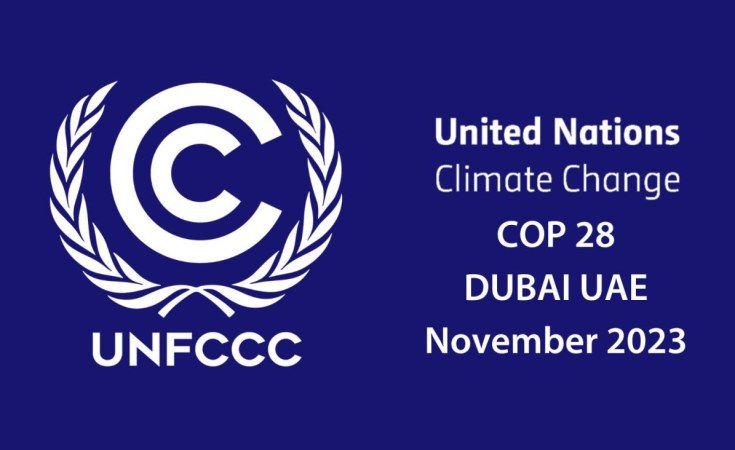Emtithal Mahmoud, a Sudanese refugee, writer and activist, is preparing to attend the Cop28 climate summit in Dubai this month as part of her mission to raise up overlooked voices. RFI met her during a visit to the Minawao refugee camp in northern Cameroon, where displaced people are experiencing the harsh realities of climate change first-hand.
Liatou Habila, a 26-year-old Nigerian refugee in Cameroon, has a broad smile after shaking hands with Emtithal "Emi" Mahmoud.
"I am surprised that she came to see us," Habila says of the Sudanese-American poet and goodwill ambassador for the United Nations refugee agency UNHCR.
"She is so humble and so nice and everybody likes her," Habila tells RFI.
The two women met at the Minawao refugee camp in Cameroon's Far North region, which Mahmoud recently visited.
The activist, who fled Darfur as a toddler and then grew up in the United States, was in the region to speak to displaced people ahead of the Cop28 climate summit, which starts on 30 November.
She says she will be at the talks in Dubai "to lift the voices of refugees" - who have long been left out of discussions on climate change, but increasingly find themselves on its frontlines.
Climate displacement
"You see other refugee situations where climate disasters did lead to displacement, because 70 percent of refugees actually come from climate-vulnerable settings, in different countries including Afghanistan, the DRC, Yemen and Syria," Mahmoud says.
"But from my context specifically, I have experienced that kind of environmental loss at many different levels and many different climates, both in the States and in Sudan and many different areas."
In Cameroon, the Far North region hosts thousands of displaced people, some from Nigeria and others forced to flee from within the country. Some have fled extreme weather events or conflicts over land and resources aggravated by climate change.
But they can't escape climate pressures at the Minawao refugee camp.
Drought, deforestation
The camp spans some 623 hectares, with temperatures sometimes reaching as high as 40 degrees Celsius. The area has seen regular droughts in recent years, much like many other regions of the Sahel, the semi-arid scrubland that borders the Sahara desert.
This has been made worse in Minawao by the loss of trees, which both refugees and the local population depend on for firewood.
According to the Centre for International Forestry Research, an estimated 80 percent of Cameroonians rely on wood for all their household energy. It estimates that 2.2 million metric tonnes of firewood is burned annually throughout the nation. And with electricity in short supply and domestic gas practically unavailable in remote places like Minawao, firewood is the camp's primary source of fuel.
The rising demand for firewood is adding to the pressure on Cameroon's forests, which are already threatened by logging, farming, mining and construction.
Even as refugees like Habila go further afield in search of firewood, they face the prospect of sexual violence.
"They are sexually abused. They are raped almost every day they step out to look for wood," said Luka Isaac, a spokesperson for Nigerian refugees at Minawao.
The refugees therefore initiated a tree-planting campaign - not only to help provide fuel, but also to provide shade from the searing Sahelian heat.
Over 50,000 new trees
"We started with just 500 trees," Luka tells RFI. "With the help of the Cameroon government, the UNHCR and other aid agencies, we are now on more than 50,000 trees."
Mahmoud sits in the shade of a neem tree taking in the breeze.
"I think what's so brilliant about the climate solutions here are that they weren't just offered or led by refugees, they were created by refugees from the outset," she tells RFI.
She says she performs her spoken-word poetry because she believes that "if one person hears it and it makes a difference in their lives, if it shifts their perspective about a refugee or a vulnerable person or it makes them see us as more human, if it just makes one person listen a little bit better or see the humanity a little bit more, that makes a huge difference for me".
The same mission will take her to Cop28, where she hopes to ensure that refugees' long-ignored voices are heard.


